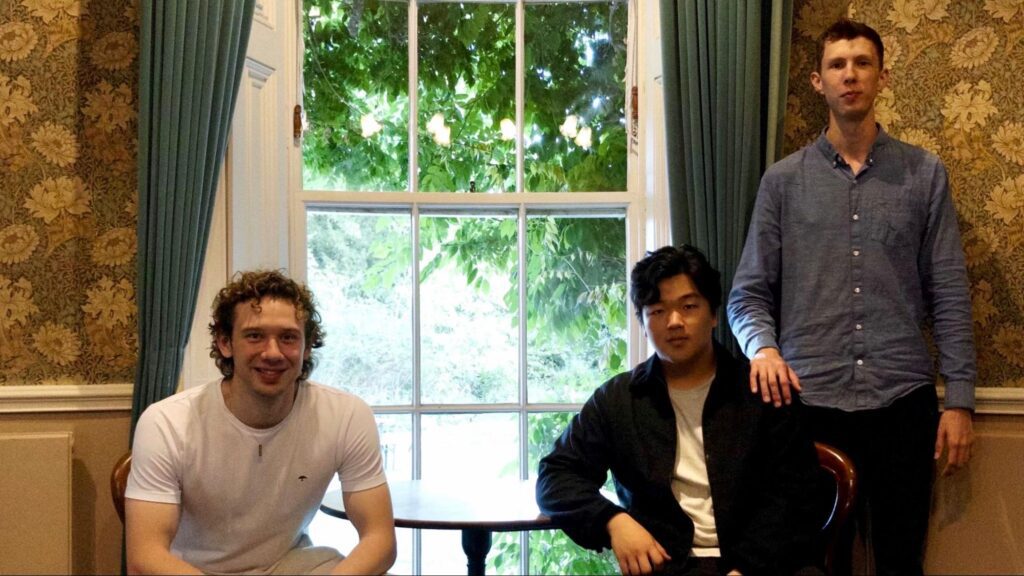AI promises everything from smarter search to automated workflows, yet most tools remain limited to reactive chatbots or single-purpose copilots. They rarely capture the full context of how people actually work on their computers, which makes them prone to errors, interruptions, or simply being ignored.
This is where nineteen-year-old Aidan Guo comes in. As co-founder of startup Attention Engineering, he is building a “general desktop assistant” that runs in the background, learns patterns from daily activity, and predicts what a user is likely to do next. Backed by $1.25 million in funding from a roster of top tier venture capitalists and angel investors, the company is positioning its always-on assistant as a tool that works alongside professionals rather than apart from them.
Automation Vs. Augmentation

The technology sector has spent decades promising that new software would take work off people’s plates. Many firms pursued “AI assistants” long before the technology could live up to the name, leaving behind underwhelming tools that either felt intrusive or fell short of actual utility. In fact, on certain occasions, they only seem to increase labor, with 77% of employees reporting that AI has increased their workload due to the need to review AI-generated content and fix errors.
Aidan argues that much of the current push toward full automation comes with the same risks. While demonstrations of models show theoretical potential, in practice, they falter when asked to handle context-specific tasks that define knowledge work.
The alternative, he suggests, is augmentation: designing systems that learn from (and adapt to user behavior), tracking their movements to better understand how they work and how best to help them. This would be a vast improvement from the tools knowledge workers typically work with, many of which have barely evolved in recent years.
“Everyone’s trying to automate. And that by itself seems like the wrong approach,” he says, noting that many tasks are too intertwined with human expertise to be cleanly automated.
Attention Engineering: A Proactive Desktop Companion
Attention Engineering’s answer is a platform that runs continuously in the background, recording and analyzing on-screen activity to build a live model of what its user is doing. Instead of waiting for a command, it interprets patterns in the workflow and predicts what step should come next. Where most assistants require prompts (like typed instructions or voice cues), this one works ambiently, looking for the moment its services are most useful.
The result, Aidan believes, could be as simple as drafting a follow-up email immediately after a legal call or summarizing a project update while the details are fresh. “We’re essentially using 24/7 screen recording to build a really good general desktop assistant that’s fully proactive,” he explains.
The company aims to set itself apart in a field of companies offering services through AI. While many rivals design automation systems for the sake of automation itself, Attention Engineering emphasizes amplifying the humans behind them. The assistant is intended to be highly personalized, effectively creating a generalized, flexible platform with use cases for different types of industries.
That philosophy has resonated first with productivity-focused professionals: the kinds of users who already invest heavily in structuring their digital work, from engineers fine-tuning their coding environments to product managers organizing projects in Notion, can see immediate value in shaving minutes from recurring tasks.
A Founder Shaped By Early Entrepreneurship
Aidan’s personal journey to launching Attention Engineering didn’t follow the standard path of computer science degrees and corporate apprenticeships. He began reselling sneakers at age 13, scaling the effort into bot development and a Discord community that generated more than $300,000 by the time he was 17.
The experience gave him both a taste for building automated systems and a conviction that he could chart his own course outside of formal education.
After briefly enrolling at Carnegie Mellon, Aidan set out to try to become an entrepreneur full-time, saying, “I realized that I didn’t really need to go to college to make money — I wanted to build with AI.” He partnered with Cambridge-trained technologist Julian Windeck, whose background in distributed systems research provided the deep technical knowledge to complement Aidan’s strengths. Together, the two experimented with side projects before settling on the concept that would become Attention Engineering.
Their shared conviction was that timing mattered: previous attempts at proactive assistants had faltered, but the maturity and diversity of today’s models made it feasible to try again.
That belief resonated with investors. Village Global, Worldcoin co-founder Max Novendstern, and Sequoia scouts from DeepMind and Cognition, all contributed to the company’s seed round. For Aidan, many of these checks weren’t the result of formal pitches but rather came out of mentors and friends who’d formed prior relationships with him.
A Vision For The Future Of Knowledge Work
As Attention Engineering continues to evolve, Aidan’s vision for the company goes beyond productivity hacks. He imagines a future in which professionals command dozens of simultaneous agents operating as extensions of themselves. In this vision, humans remain the pilots, while their digital counterparts accelerate execution. The key challenge is what he calls “next action prediction:” accurately discerning what a person is about to do, then stepping in to assist.
Solving that challenge, he argues, would make general platforms more powerful than today’s specialized copilots. It would also reinforce a future where human judgment continues to be a critical aspect for operations, but is supported by an ecosystem of intelligent tools. “Augmenting allows you to take care of work faster and better,” Aidan says. “And I think that’s what AI is all about.”
Attention Engineering’s roadmap starts with focusing on specific power users but ultimately points toward enterprise adoption, where scaling across organizations could greatly improve efficiency and streamline operations. For Aidan Guo, the long-term aspiration is not a quick acquisition or pivot, but the creation of a company that helps define how people interact with their computers.

